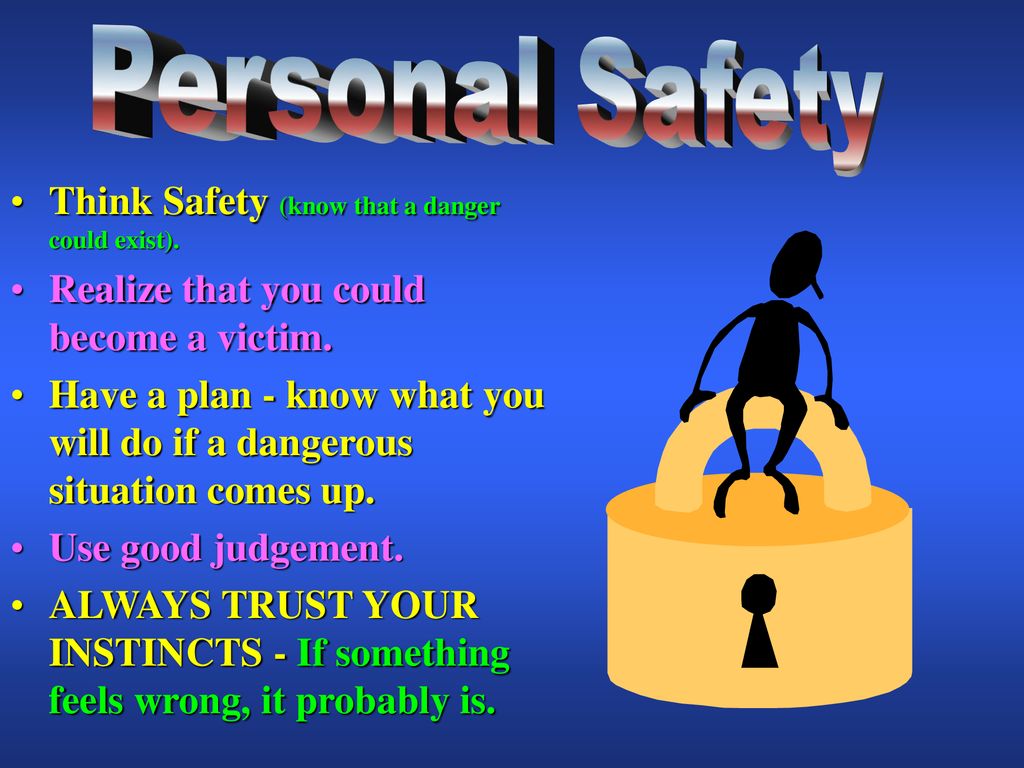
Personal safety refers to measures and practices individuals take to protect themselves from potential harm or danger.
Here are some examples of Personal Safety Measures:
Adopting these practices can significantly contribute to personal safety and reduce the likelihood of being in risky situations. Remember, personal safety measures should be adjusted according to individual circumstances and environments.
Thank you.